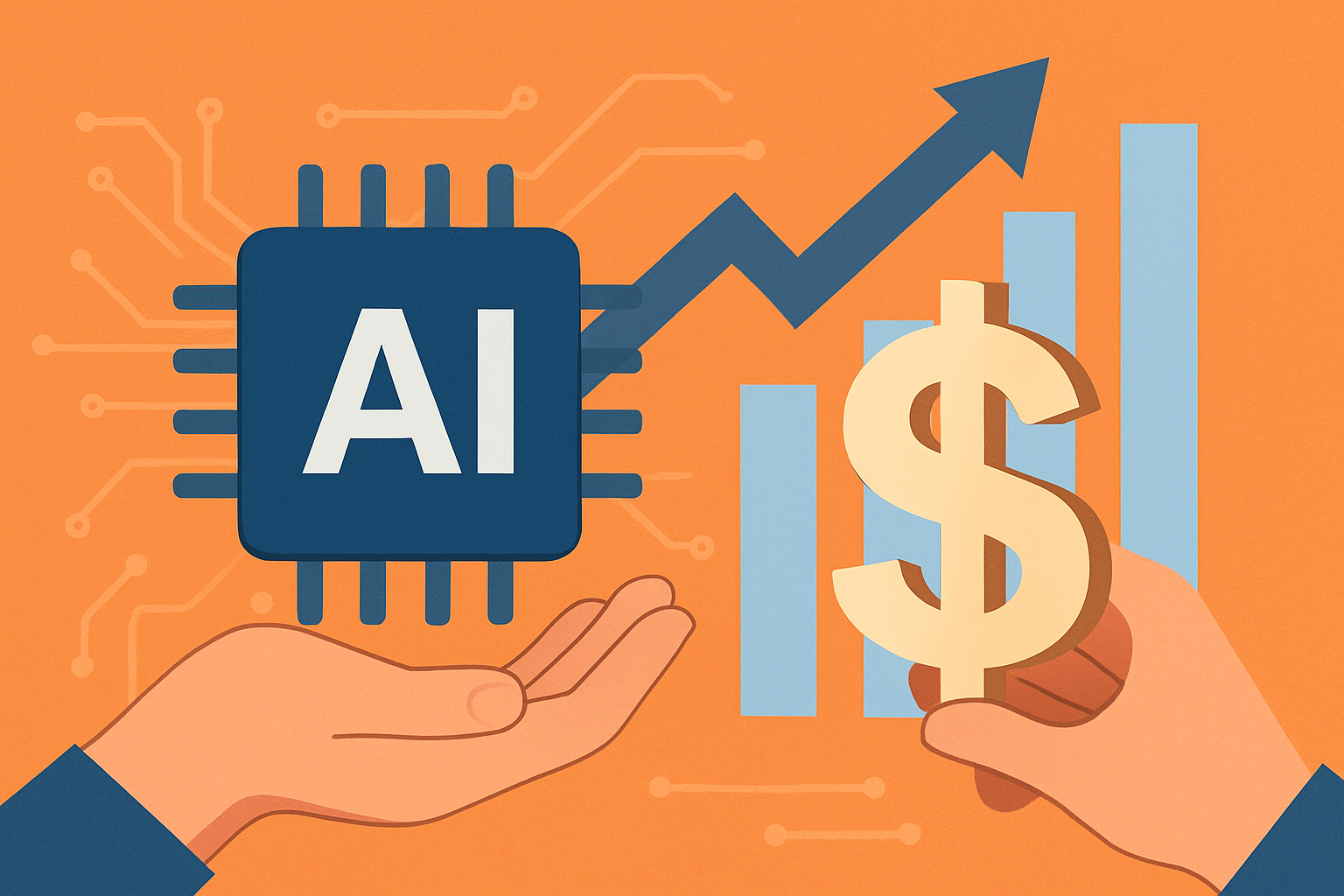Artificial intelligence has dominated market conversations in 2025, but beneath the headlines on generative models and enterprise adoption lies a quieter arms race: the hardware powering it all. This week, Groq, an AI-chip startup, raised $750 million in fresh capital, valuing the company at about $6.9 billion according to Reuters. The funding round drew backing from major institutional investors including BlackRock and Deutsche Telekom, underscoring growing conviction that the next phase of AI growth will be built on compute infrastructure.
Why This Matters for Investors
The AI narrative has so far been dominated by software players—OpenAI, Anthropic, and others capturing imagination with large language models. But the true bottleneck remains compute capacity. Nvidia’s ($NVDA) meteoric rise highlighted the importance of GPUs, and Groq’s raise suggests investors are now willing to bet heavily on specialized inference chips designed to run AI applications more efficiently.
The stakes are high: training and running AI models requires massive compute resources. Companies providing hardware innovation—whether through new chip designs, faster interconnects, or optimized inference—could represent the next wave of outsized returns in the sector.
Core Analysis: The Hardware Bet
Groq’s valuation jump to nearly $7 billion is significant not just for the company itself, but for the broader AI ecosystem. It signals a shift from early venture speculation to large institutional commitments. According to industry analysts at McKinsey, global AI infrastructure spending is projected to surpass $400 billion annually by 2030, with hardware accounting for more than half of that growth.
Institutional investors like BlackRock are rarely early movers in speculative startups; their entry indicates confidence that AI compute hardware is moving into mainstream capital markets. At the same time, companies like Groq face enormous challenges: chip fabrication is capital-intensive, highly exposed to supply chain disruptions, and subject to geopolitical risk, including tariffs and export controls.
This raises a key point for investors—while upside is clear, concentration risk in a single hardware startup is high. Unlike software, which scales cheaply once built, hardware requires continuous investment in design, manufacturing, and logistics.
Future Trends to Watch
- Diversification Across Hardware Players – Beyond Groq, competitors like Cerebras, Graphcore, and established giants like Nvidia, AMD ($AMD), and Intel ($INTC) will continue to fight for dominance in inference and training hardware.
- Geopolitical Tariffs & Regulation – U.S.-China chip tensions remain unresolved. Export controls on advanced chips are already restricting growth pathways, and Groq’s ability to scale will partly depend on navigating these restrictions.
- Enterprise Demand Signals – Cloud providers and enterprise SaaS companies will likely drive hardware adoption. Deals similar to Microsoft’s ($MSFT) Azure commitments or Amazon’s ($AMZN) AWS infrastructure bets could determine which startups succeed.
Key Investment Insight
Investors should view Groq’s raise as a signal to broaden exposure to the AI hardware value chain. While software headlines generate buzz, the longer-term opportunity may lie in companies enabling scalable AI compute. A diversified strategy—mixing established chipmakers with credible hardware startups—may provide the best balance of growth and risk mitigation.
For those seeking indirect exposure, ETFs focusing on semiconductors and AI infrastructure could offer diversified access without the idiosyncratic risks of individual startups.
Takeaways
Groq’s $750 million raise marks another milestone in the AI investment cycle, highlighting investor appetite for the infrastructure behind the intelligence. The message for investors is clear: the future of AI is not just about algorithms—it’s about the chips and systems that make them possible.
As institutional capital flows into specialized compute, opportunities will expand, but so will risks. Investors should watch closely which companies secure enterprise adoption and navigate supply chain headwinds most effectively.
Stay informed with MoneyNews.Today, your go-to source for the latest investor insights on AI, markets, and emerging industries.





